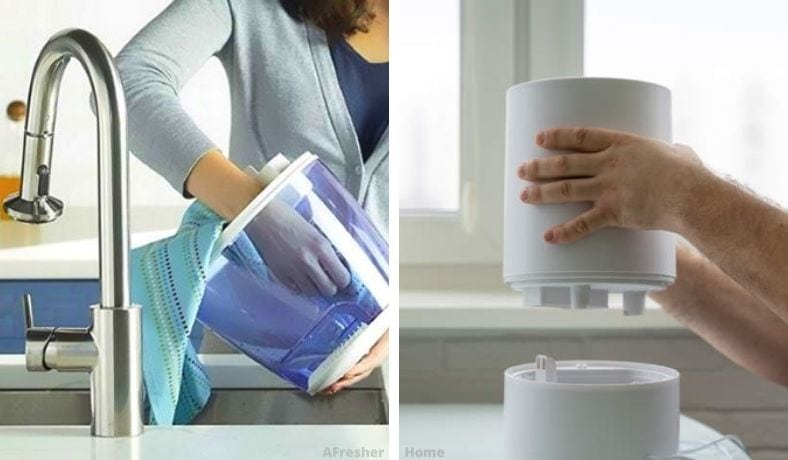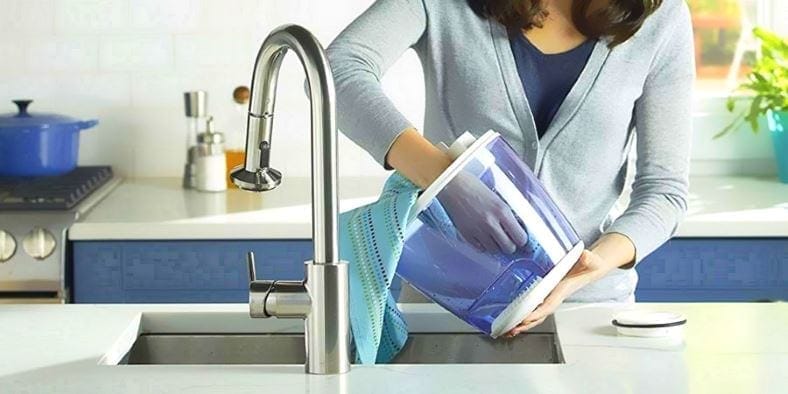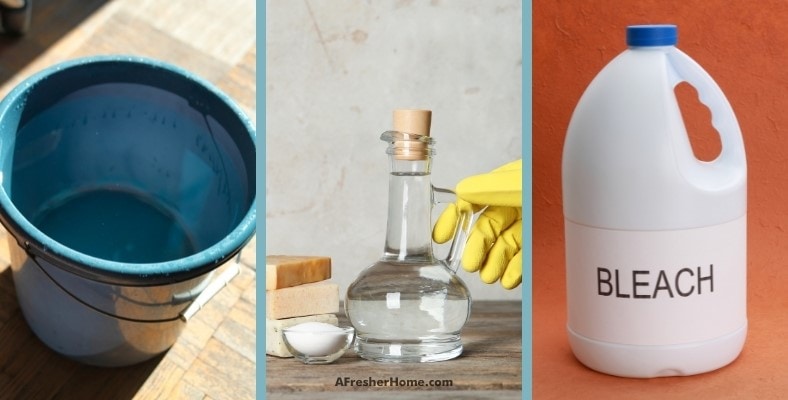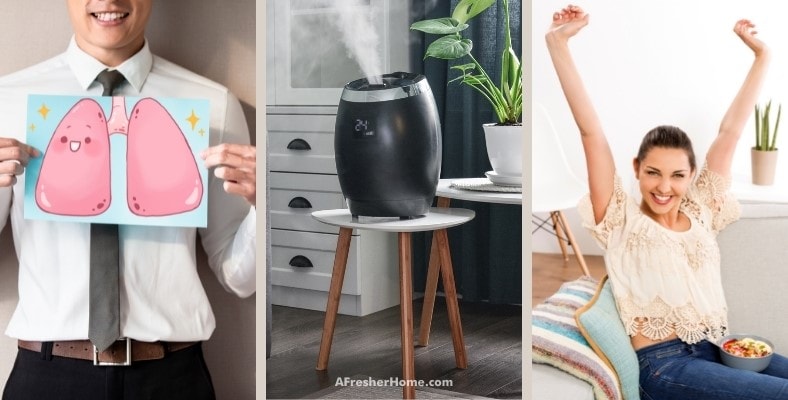Keeping your humidifier clean is definitely important – but how often should you clean it? Read on to find out!
Contents
How often should I clean my humidifier?
The answer is that how often you should clean your humidifier depends on how much you use it. For standard use, one cleaning per week is usually fine.
If you use it every day heavily then it will need more regular cleaning than if you use it once or twice a week, or once a month. Most manufacturers recommend you clean it out once per week especially for normal daily use.
Why do humidifiers need to be cleaned anyhow?
The issue with humidifiers is that you may think about using the water you use as being quite clean so the humidifier’s water tank and passages should stay clean too, right? Well, yes it is, but water a humidifier needs cleaning for a number of possible reasons:
- Hard water mineral build up.
- Trace elements of other substances in the water supply build up.
- Microbes or germs that being to grow in still water.
- Microscopic dirt or other particles that collect.
This is especially true for water that’s left alone and standing for a while near sunlight as that definitely encourages algae or germ growth.
Water filters in humidifiers
Some cool mist humidifiers have a filter to trap minerals in. However, most people will be pretty laid back when it comes to changing or cleaning the filter out regularly.
As a result these minerals then get spewed into the atmosphere which isn’t great for your lungs or your furniture and can encourage bacterial growth.
How to clean your humidifier
Here’s a list of steps for cleaning:
- Unplug the humidifier and empty the water from all the applicable parts (storage tank and base, etc.) near a sink.
- Starting with the base, pour some white vinegar into all areas that touch the water. If any pieces are removable then take them out and soak them in a vinegar-filled bowl.
- Let them sit for up to half an hour and then clean up any build up with a soft non-abrasive brush. (Using a brush with hard bristles can damage the clear finish of the water tank.)
- Now clean the tank using a ratio of one gallon of water to one teaspoon or bleach. Fill the tank halfway and close it tightly then gently swish the mixture around. Let it sit for half an hour.
- Next, use regular tap war to rinse all parts until the smell of the cleaning solution is gone. Towel dry or use paper towels to clean up spilled water on it as needed.
- Put the humidifier back together after refilling the tank and you’re ready!
Never leave water in the tank from previous uses. Always use a refill of fresh water to avoid problems.
Why should you clean your humidifier?
Keeping a humidifier clean is very important for a few reasons.
- First, it’s necessary to ensure that the humidifier keeps working properly by preventing it from becoming clogged with build up or other matter – especially for ultrasonic-type humidifiers.
- The most important reason is that a poorly maintained humidifier is capable of spreading harmful bacteria into the air. Without any proper disinfecting and cleaning the water in your humidifier will become stagnant and a breeding ground for nasties within it.
Bacterially contaminated water can lead to a number of health issues including asthma attacks, severe coughs, lung inflammations, high fever, loss of appetite, anxiety, shortness of breath, and more.
In fact, in worst-case scenarios, you could even develop a respiratory infection, or lung disease by breathing in airborne germs or microbes.
Maintainance makes it easier
Another reason to follow the recommended cleaning routine is that it’s easier to do it before it gets much worse. In other words, it’s a lot easier to deal with a little bit of simple cleaning now rather than waiting until there’s a difficult build-up or even stains in it later.



